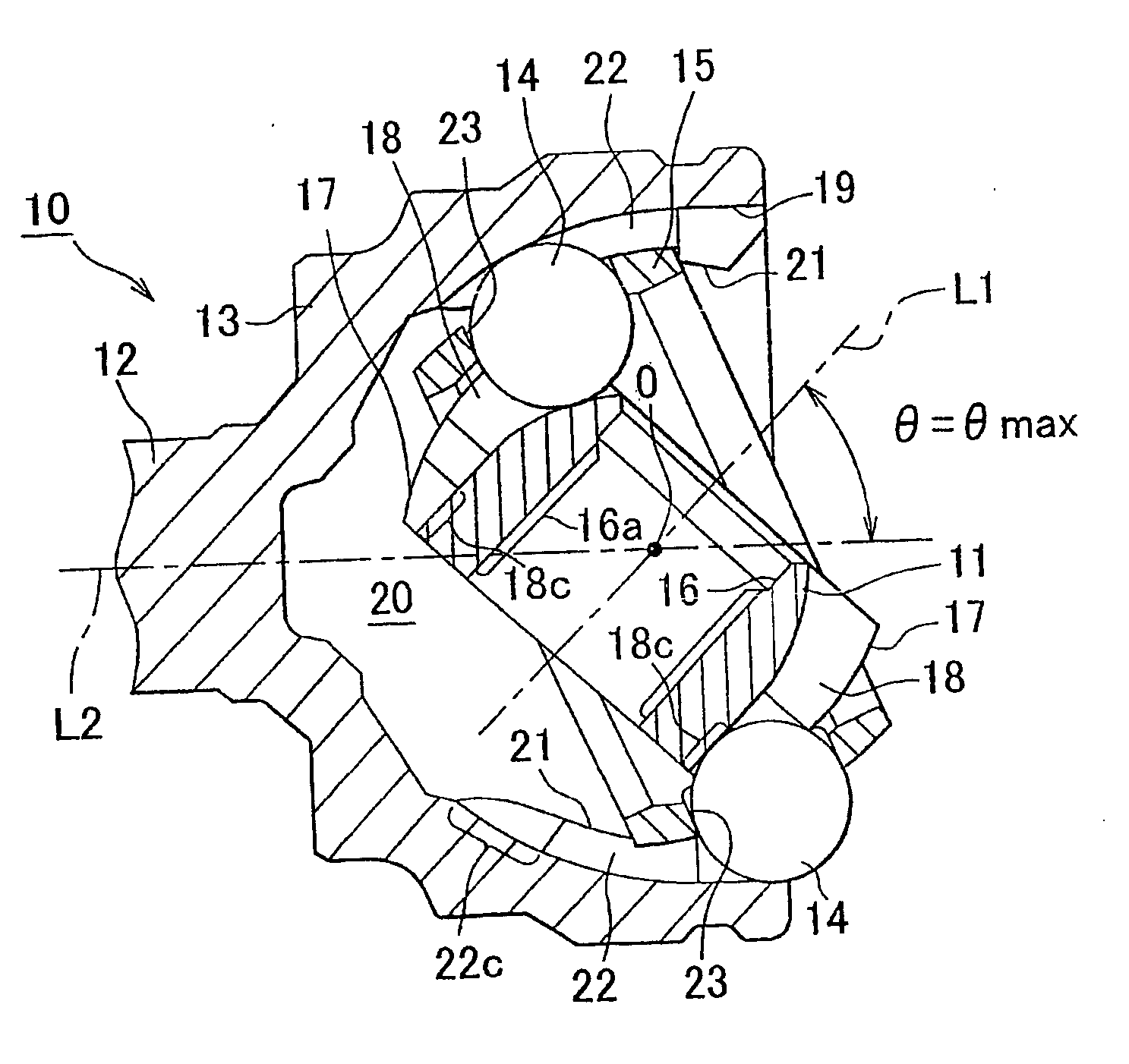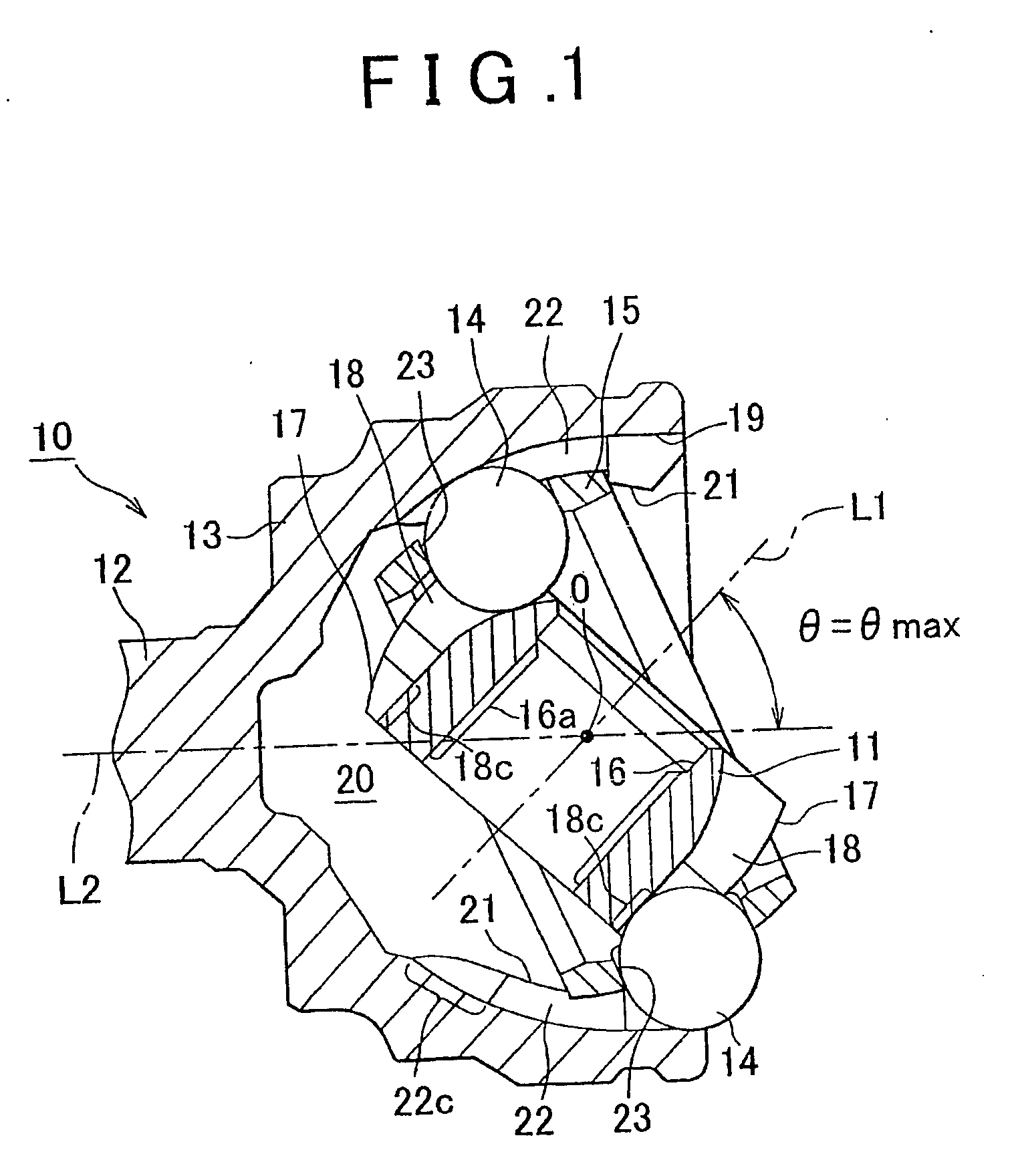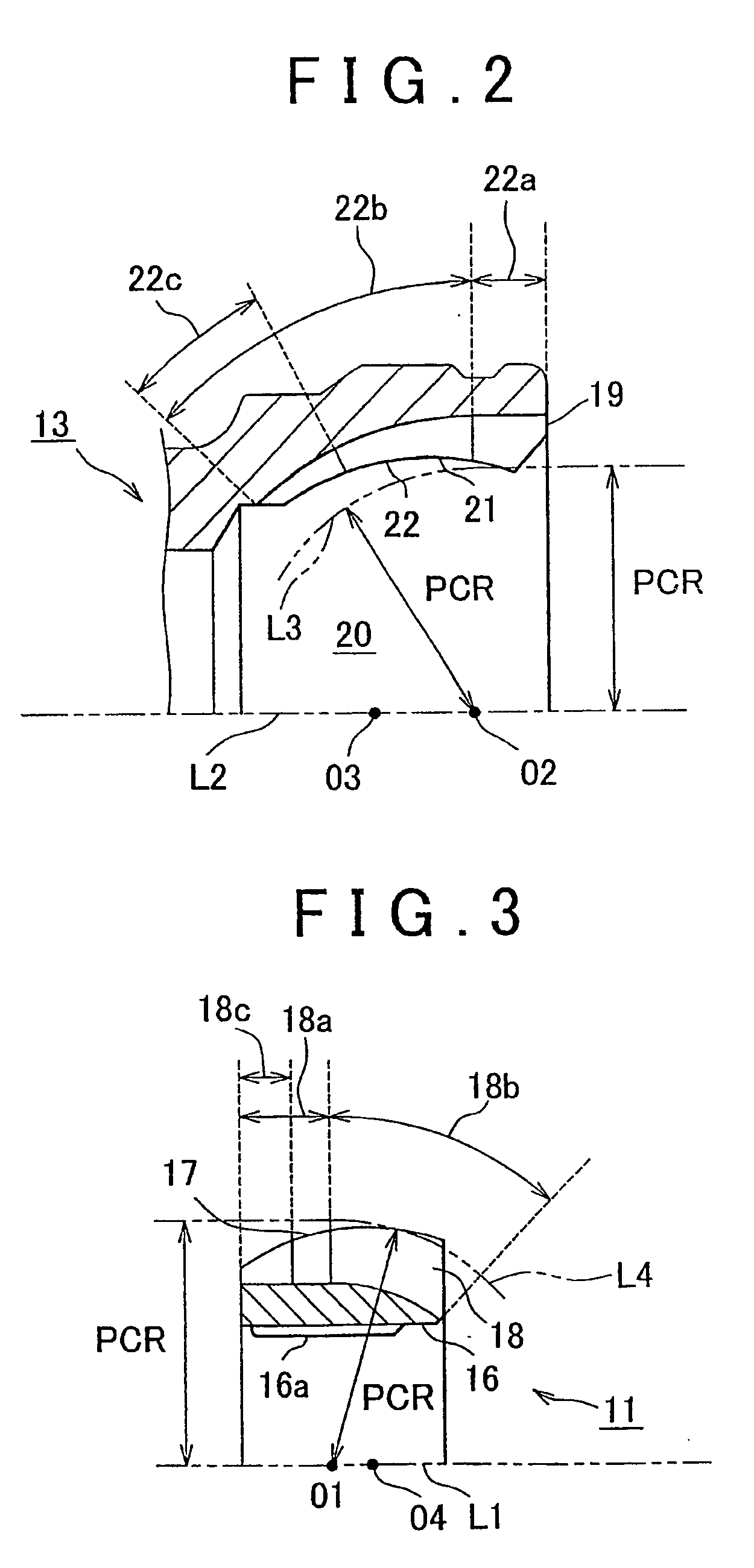Constant velocity joint
a constant velocity, joint technology, applied in the direction of yielding couplings, rotary machine parts, couplings, etc., can solve the problems of inability to make constant the depth of the ball groove is inevitably reduced, and the known uf-type constant velocity joints may suffer, etc., to achieve enhanced freedom in the design of the joint, the effect of reducing size and weigh
- Summary
- Abstract
- Description
- Claims
- Application Information
AI Technical Summary
Benefits of technology
Problems solved by technology
Method used
Image
Examples
Embodiment Construction
[0033] One exemplary embodiment of the invention will be described in detail with reference to the accompanying drawings.
[0034] A constant velocity joint 10 according to the embodiment of the invention as shown in FIG. 1 generally includes an inner race 11 connected to an end portion of a driving shaft (not shown), and an outer race 13 connected integrally to a driven shaft 12. The constant velocity joint 10 further includes a plurality of balls 14 (i.e., six balls in this embodiment) that are interposed between the inner race 11 and the outer race 13 and are arranged to transmit torque between the inner and outer races 11, 13, and a cage 15 for holding these balls 14. FIG. 1 shows a state of the constant velocity joint 10 in which the joint angle 0 is equal to the maximum angle θmax.
[0035] A through-hole 16 is formed in the inner race 11 to extend through the inner race 11 in the direction of its rotation axis L1, as shown in FIG. 1. A spline 16a extending in the direction of the...
PUM
 Login to View More
Login to View More Abstract
Description
Claims
Application Information
 Login to View More
Login to View More - R&D
- Intellectual Property
- Life Sciences
- Materials
- Tech Scout
- Unparalleled Data Quality
- Higher Quality Content
- 60% Fewer Hallucinations
Browse by: Latest US Patents, China's latest patents, Technical Efficacy Thesaurus, Application Domain, Technology Topic, Popular Technical Reports.
© 2025 PatSnap. All rights reserved.Legal|Privacy policy|Modern Slavery Act Transparency Statement|Sitemap|About US| Contact US: help@patsnap.com



